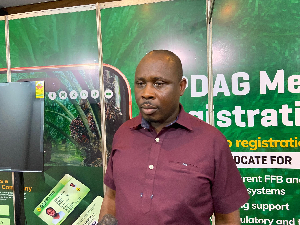on the Elimination of Discrimination Against Women
Ghana has been elected a member of the United Nations' Committee on the Elimination of Discrimination Against Women (CEDAW).
This follows the election of Miss Hilary Amesika Gbedemah, a lawyer and gender consultant in a fiercely contested election at the UN Headquarters, New York, by the 187 states parties present and voting.
By this election, Ghana joins 10 other elected member- states that will spearhead the activities of this worldwide body from January, 2013. The Committee will monitor the implementation of national measures in eliminating discrimination against women.
It is also empowered to make recommendations on any issue affecting women to which it believes the State parties should devote more attention.
The CEDAW, adopted by the UN General Assembly in 1979 is often described as an international bill of rights of women.
The convention defines what constitutes discrimination against women and also sets up an agenda for national action to end such discrimination.
It defines discrimination against women as "any distinction, exclusion or restriction made on the basis of sex which has the effect or purpose of impairing or nullifying the recognition, enjoyment or exercise by woman, irrespective of their marital status, on a basis on equality of men and women of human rights and fundamental freedoms in the political, economic, social, cultural, civil or any other field."
Miss Gbedemah, who is rector of the Law Institute in Ghana, said her election was a confirmation of the high respect Ghana had earned and the recognition that Ghana's Permanent Mission to the United Nations had carved for itself at the comity of nations.
An elated Miss Gbedemah praised Ghana's Permanent Mission to the UN for its tireless efforts leading to her victory, as well as those who mentored her in the process and "hoped that Ghana will seize this opportunity to enact more pace-setting legislation on gender equality".
Describing her endorsement as "a commitment to women's human rights", she said it was "an opportunity to articulate and implement issues that affect women, apart from enhancing the advocacy role of civil society in advancing women's rights."
The committee will be in office for four years and at each of its sessions, "the Committee reviews national reports submitted by the States parties within one year of ratification or accession, and thereafter every four years. These reports, which cover national action taken to improve the situation of women, are presented to the Committee by Government representatives.
"In discussions with these officials, the CEDAW experts comment on the report and obtain additional information. This procedure of actual dialogue, developed by the Committee, has proven valuable because it allows for an exchange of views and a clearer analysis of anti-discrimination policies in the various countries.
Among other things, the committee is also empowered to consider complaints submitted by individuals or organizations alleging violations of the convention in states that are party to the convention of the Optional Protocol.
The Protocol entitles the committee on its own motion to inquire into grave or systematic violations of the convention in those states parties
Other countries whose representatives were elected are Nigeria, China, Italy, Brazil, Lebanon and France. The rest are Qatar, Jamaica, Lithuania and Finland.**
General News of Thursday, 28 June 2012
Source: GNA












